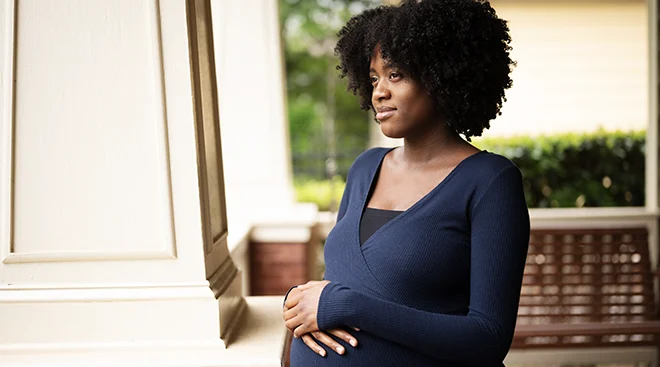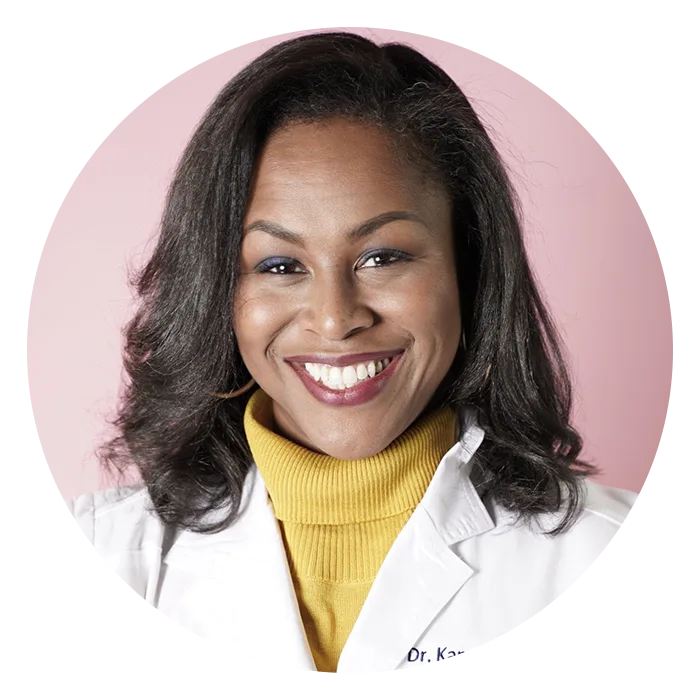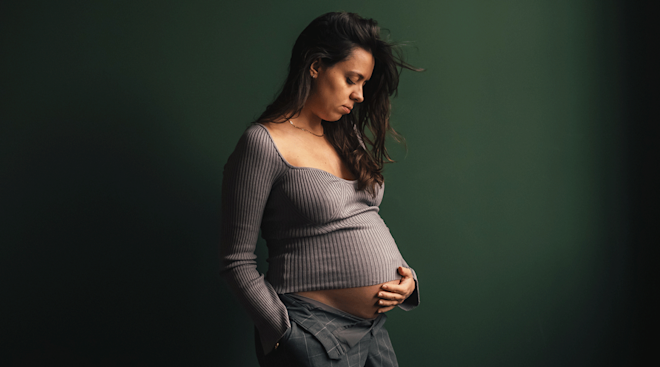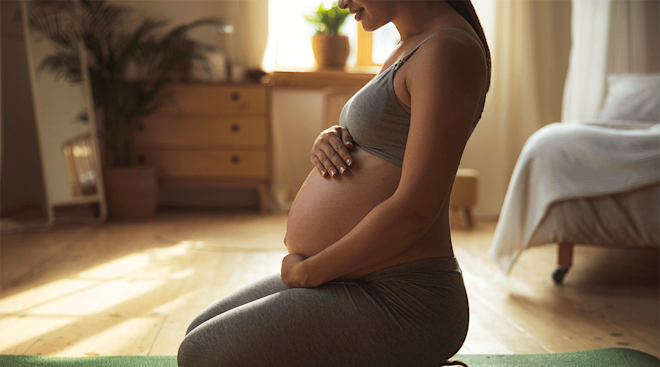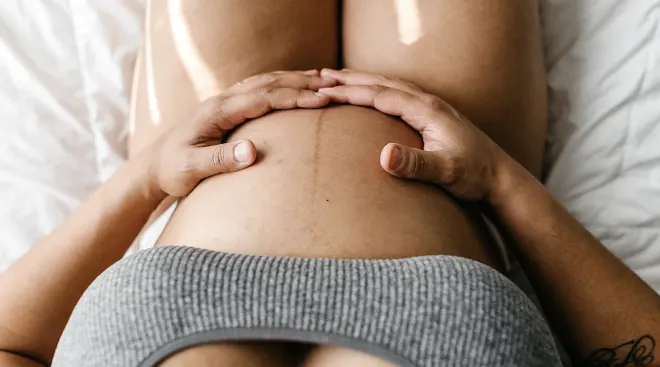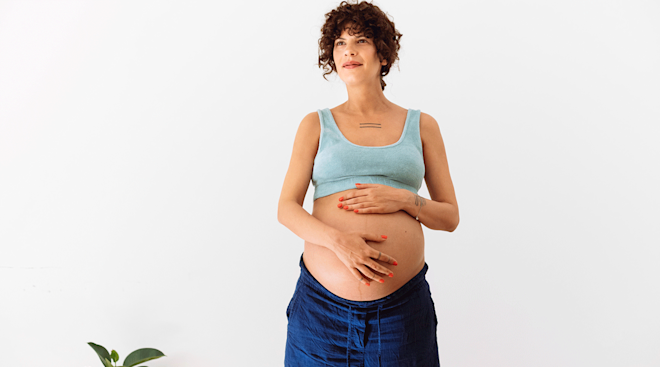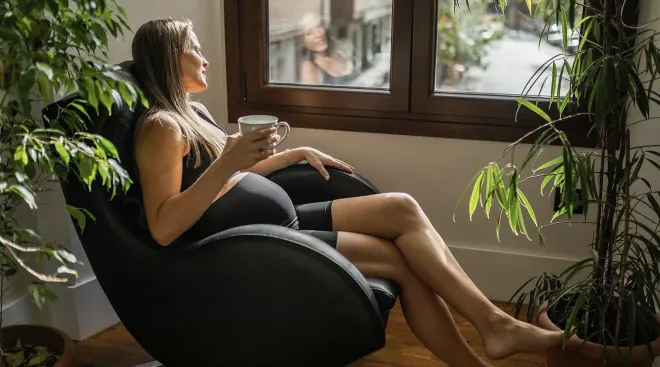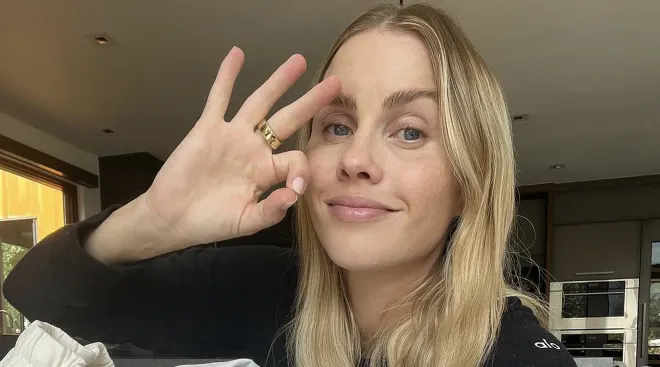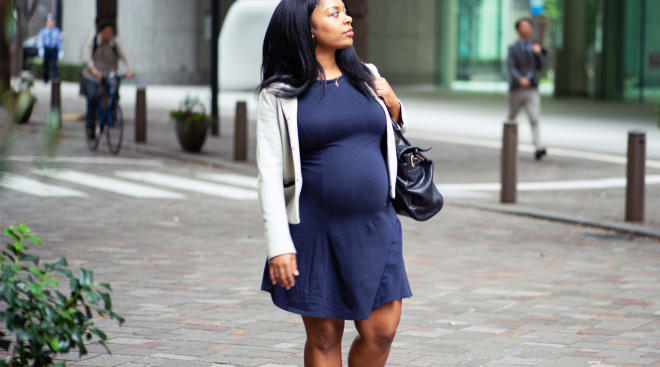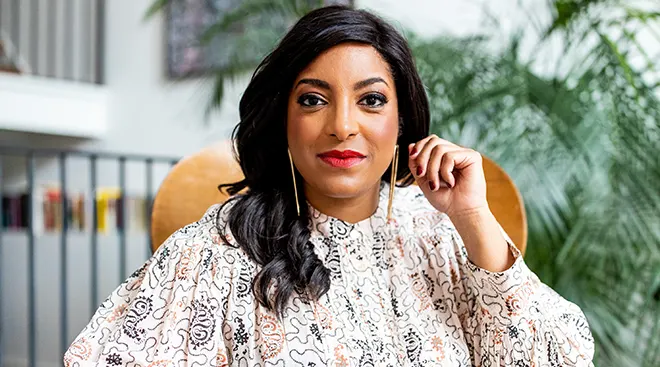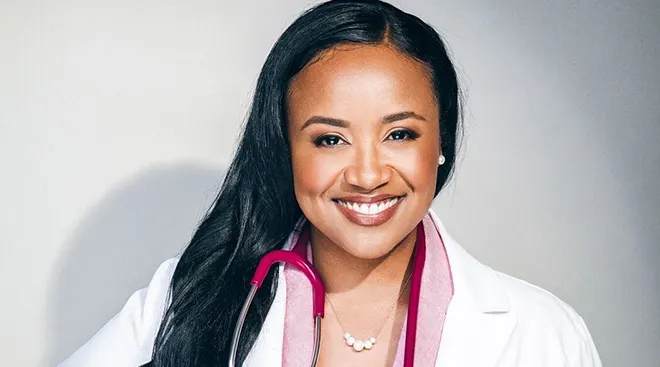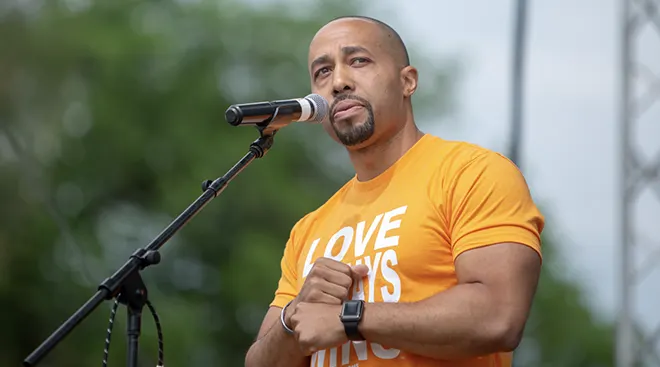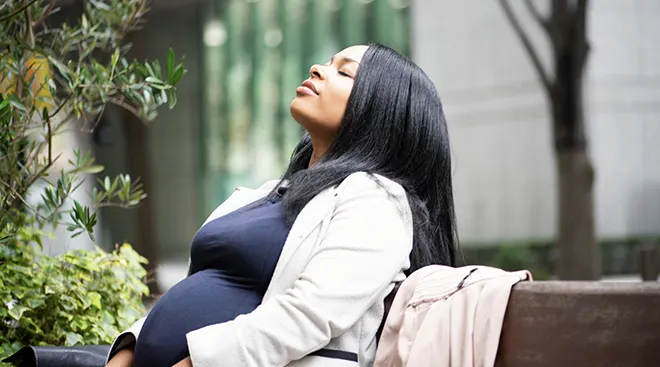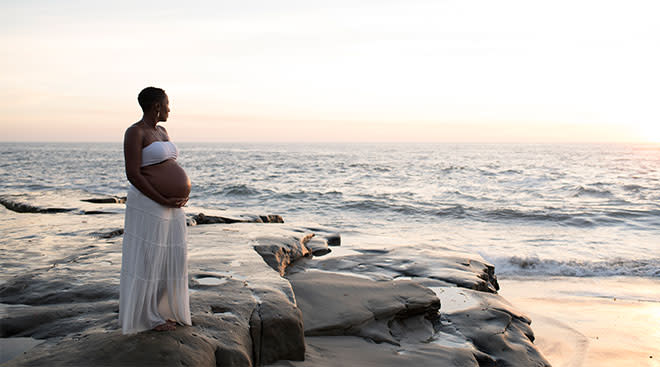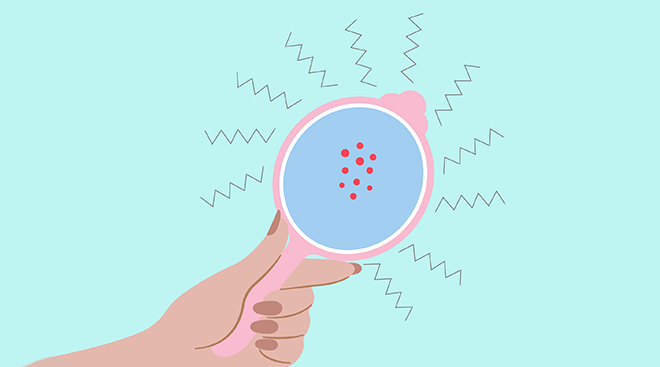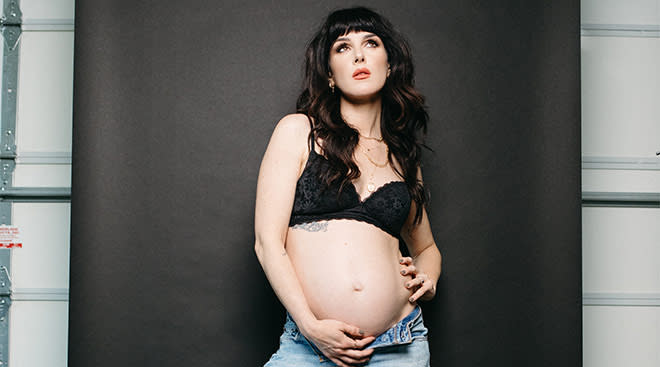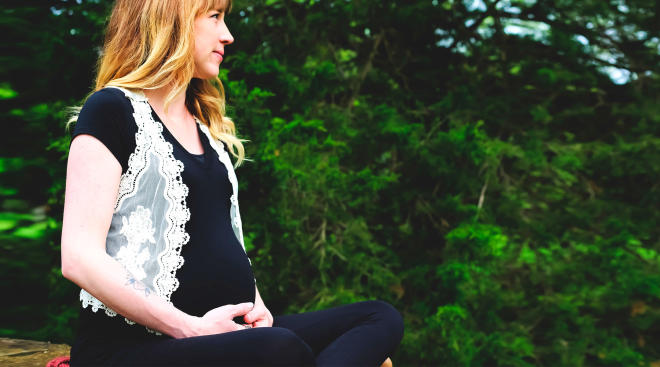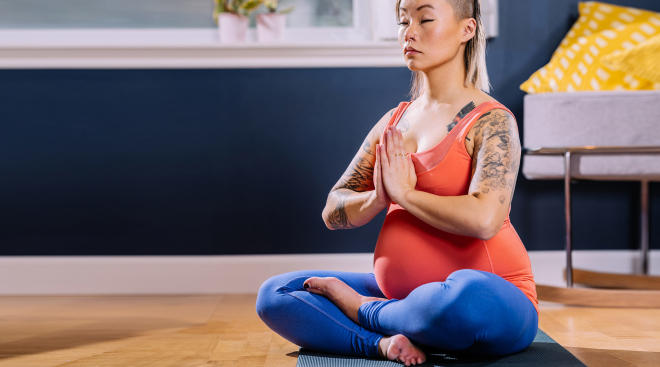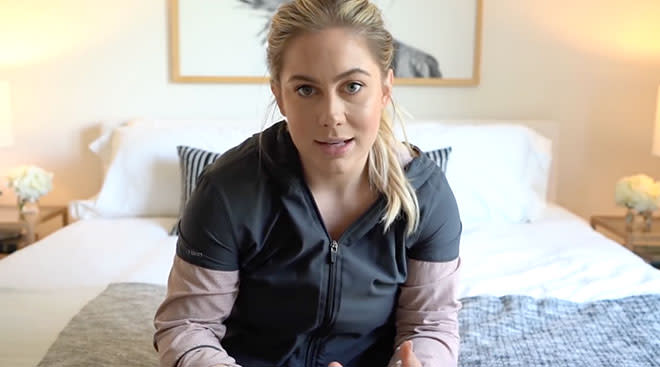To Eliminate Healthcare Disparities, Black Women Must Be Heard
This article is part of The Bump’s Doctor Spotlight series featuring medical professionals who are dedicated to supporting and preserving Black maternal health. These doctors share their experiences, insights and advice to help guide and empower women of color who are planning or navigating pregnancy.
When something hurts or feels off in our bodies, especially during pregnancy, we look to our doctors for care. But what happens when our concerns aren’t taken seriously? Time and again, Black moms-to-be raise questions and point out ailments that are minimized or dismissed—and the result is a gaping disparity in maternal outcomes. Kameelah Phillips, MD, an ob-gyn and founder of Calla Women’s Health in New York City, is a lifelong women’s health advocate. Here, she reflects on the professional experiences that have shaped her views on minority women’s health, the impact of bias in the medical establishment and her advice for expectant women of color as they face the emotional ups and downs of pregnancy and fight for their voices to be heard.
The Bump: Tell us a bit about your practice and the patients you serve.
Kameelah Phillips: I started Calla Women’s Health the week New York City was shut down due to the COVID-19 pandemic. It’s my first experience in private practice as a minority woman entrepreneur. I decided to step out of my comfort zone to create a space where people could find nonjudgmental and evidence-based medical care. I aim to partner with patients on their journey through puberty, reproductive decisions, pregnancy and menopause. I’ve been in medicine for over 15 years and, since the beginning, have been fortunate to take care of a diverse patient population. New York City is home to every nationality, language, gender and sexual identity. Everyone is represented, respected and welcomed at Calla Women’s Health.
TB: You have a long and proud history of community service. What volunteer experiences have significantly shaped your views on care for minority women’s health?
KP: I have worked in women’s health in Ghana, Tanzania, Cuba and Haiti. These experiences have been informational and inspiring. What has most influenced my views on women’s health, however, is my training and medical practice in New York City, as I am constantly reminded that our outcomes are often worse than so-called “underdeveloped” countries. It has been both shocking and frustrating to see outcomes in maternal health that pale in comparison to these and other countries.
That being said, I was particularly inspired by the maternal health programs in Cuba. Despite many challenges, Cuba has prioritized care of its women and children. When countries prioritize the health of women, everyone does better. I look forward to our public policies putting the focus on women’s health.
I also reflect on my experience in Port au Prince, Haiti, during the 2010 earthquake. I was working at an emergency tent city when I found a pregnant woman unconscious and in the middle of a seizure. She was suffering from an eclamptic seizure and desperately needed medical assistance. In the chaos of the rubble and ongoing aftershocks, we found the assistance to save her and her baby. I never learned her name, but I think of her often and reflect on the fragility of life and the importance of women’s health in our world. In high- or low-resource countries, access to emergency and exceptional women’s healthcare is fundamental. I will continue to work to make sure everyone has access.
TB: One of your areas of speciality is healthcare disparities. What are you witnessing on the frontlines?
KP: Healthcare disparities and the negative impact of racism and bias in medicine is real. It impacts the women I see in the ER diagnosed with late-stage cancer who have reported seeing multiple healthcare providers about their concerns, only to have their complaints minimized or dismissed. I see it in women with advanced fibroids who are not offered fertility-sparing surgery, but instead undergo unindicated hysterectomies at a young age. Every week, I see examples of how the social determinants of health impact marginalized women by limiting their access to doctors, hospitals, health education, preventative care, health food and more. These healthcare disparities directly impact their ability to receive care for pressing gynecological and obstetrical issues. Medical conditions such as fibroids, abnormal pap smears, preterm labor and other treatable conditions go without attention, causing further compromise and poor outcomes. There is a lot of work that needs to be done on a local and national level to address issues of health disparities.
TB: What do you see as key to preserving and protecting Black maternal health, and how are you working in support of that?
KP: It is imperative that hospital systems, doctors and policymakers listen to Black women. Too many times I hear patient stories of how their complaints were minimized or ignored. Research detailing issues pertaining to Black women’s health is critical. These medical issues would include—but are not limited to—fibroids, breast cancer, preterm labor, hypertension and diabetes in pregnancy.
It’s also important to have data to support health disparities in ob-gyn care in hospitals so that policies can work to mitigate the disparities. Healthcare bias is real. For the sake of birthing Black women, we need to train medical professionals to put aside their bias to treat Black patients with respect and dignity. To this end, I work closely with multiple organizations to highlight the role physicians play in creating spaces for equitable healthcare. It’s important to dismantle our bias, as it impacts our interaction with patients and decision-making regarding their care, as well as patient trust and engagement with the medical establishment.
TB: What is your top piece of advice for Black expectant moms?
KP: I encourage women to find a medical team they trust. Your doctor should feel comfortable discussing your concerns, including those about racism and bias in the medical system. They should welcome family as a part of your birthing experience. They should also be open to helping you understand your body, the process of labor and potential risks that are unique to you so that you can feel educated and empowered to make healthy and safe decisions.
I also encourage Black birthing people to not live in a space of fear during this amazing time. Fear is not an empowering emotion. Pregnancy is a time to embrace love, hope and joy. I encourage you to remember that you are the descendants of powerful, strong and loving ancestors who surround you with strength during this trying and sometimes scary time. Revel in the miracle of life and the awesomeness of your body and what it can do. You were made for this.
For more conversations around Black maternal health, check out additional Doctor Spotlight interviews with Temeka Zore, MD, an ob-gyn and fertility specialist; and Denese Shervington, MD, a psychiatrist and trauma specialist. Visit The Bump’s Black Maternal Health Hub for more information, inspiration and support.
About the expert:
Kameelah Phillips, MD, is a board-certified obstetrician and gynecologist, wife, mother and lifelong women’s health advocate. Since high school, she has been involved in local, national and international organizations aimed at advancing women’s healthcare issues through advocacy and direct patient care. Phillips earned her medical degree from the University of Southern California Keck School of Medicine. Her interests include minority women’s health and healthcare disparities, lactation, and sexual and menopause medicine. You can follow her on Instagram @drkameelahsays.
Please note: The Bump and the materials and information it contains are not intended to, and do not constitute, medical or other health advice or diagnosis and should not be used as such. You should always consult with a qualified physician or health professional about your specific circumstances.
Navigate forward to interact with the calendar and select a date. Press the question mark key to get the keyboard shortcuts for changing dates.

































